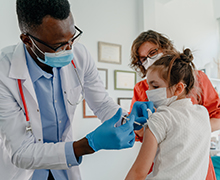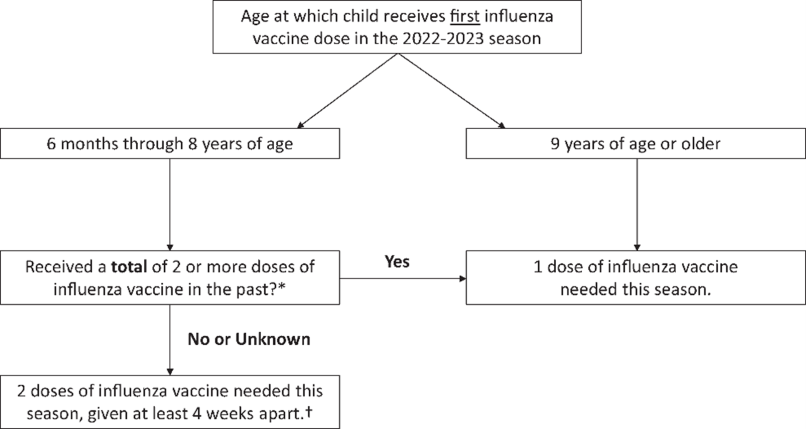Flu Vaccination Information and Other Ways to Prevent Flu
 All people 6 months and older should get the flu vaccine each year. Healthy children over 2 may get either the shot or the nasal spray vaccine. Your child’s doctor can help you choose the best option for your child.
All people 6 months and older should get the flu vaccine each year. Healthy children over 2 may get either the shot or the nasal spray vaccine. Your child’s doctor can help you choose the best option for your child.
For the best protection, get the flu vaccine for you and your family by the end of October, but it’s never too late to get the vaccine at any point in the season.
- See your child's doctor or nurse to get the flu vaccine.
- Learn about flu vaccine availability for Seattle Children’s patients and their families.
- If you need help finding flu vaccine, call the Family Health Hotline (English and Spanish) at 800-322-2588.
How many doses of vaccine will my child need for the 2022–2023 flu season?
Children 6 months through 8 years of age should receive two doses if this is the first time they’re getting a flu vaccine, or if they have only received one dose of flu vaccine ever before July 1. The doses are given four weeks apart.
Children 9 and older, and children who have received two or more doses in the past only need one dose this flu season.
Ask your child’s healthcare provider if you have any questions.
Where can I learn more about flu vaccinations?
- Flu Shot Vaccine Information Statement from the CDC (Spanish)
- Nasal Spray Vaccine Information Statement from the CDC (Spanish)
- Misconceptions about Seasonal Flu and Flu Vaccines (Spanish)
How else can I prevent the spread of flu?
- Wash your own and your child’s hands often with soap and warm water. Children should sing their ABCs twice in a row while washing their hands to ensure the proper length of time. Use alcohol-based hand cleansers when soap and water are not available. Learn more about handwashing.
- The social distancing and masking efforts to reduce the spread of COVID-19 also help reduce spread of the flu. You may choose to wear a mask when in public and when around people you don’t live with.
- Avoid people who are sick.
- People with the flu should stay home from work or school. They should stay home while they are sick and for at least one day after they no longer have a fever, without the use of fever-reducing medicines. Learn more about flu symptoms and care advice.
- Cover noses and mouths when coughing or sneezing: use tissue or the crook of your elbow when you cough or sneeze and throw the tissue away in a covered trash bin.
- Avoid touching your eyes, nose and mouth with unwashed hands. Remind children to keep their hands away from their face to avoid touching their eyes, nose or mouth.
- Clean surfaces often, including toys, doorknobs, phone receivers, keyboards and tables.
- Avoid sharing personal items such as forks, spoons, toothbrushes and towels.
- The single best way to prevent the flu is to get the vaccine every flu season.
Information updated September 15, 2022
